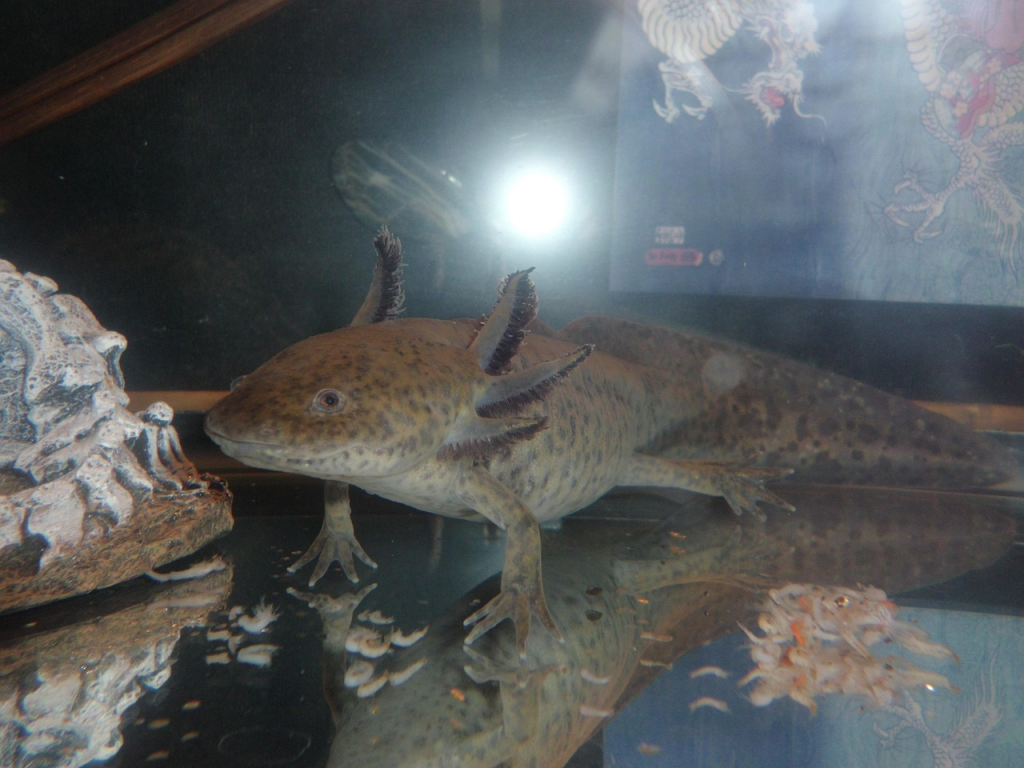Are Axolotls Legal or Illegal in Michigan? Everything You Need to Know
You’ve seen them online—those cute, frilly-gilled creatures with a permanent smile. Axolotls have become super popular, but if you live in Michigan, you might be wondering if you can actually own one. Good news: Axolotls are legal in Michigan!
But before you rush to get one, there are a few things you need to know. Some states have banned them, and certain regulations apply to their care.
You’ll want to make sure you’re getting your axolotl from a responsible source and providing the right environment. Let’s go over everything so you can be a happy and legal axolotl owner in Michigan.
Axolotl Laws in Michigan

Michigan doesn’t have a ban on axolotls, but that doesn’t mean you can bring one home without rules. The state regulates exotic pets to protect local wildlife and ecosystems.
In 2012, close to 10,000 axolotls were introduced in efforts to boost their population in the wild.
Axolotls aren’t native to Michigan, so officials want to ensure they don’t accidentally end up in the wild. If you plan to own one, you’ll need to follow basic guidelines.
Where Are Axolotls Illegal?
Axolotls are banned or restricted in some U.S. states. California, Maine, New Jersey, and Virginia don’t allow them at all. Other states may require a permit to own or breed them. These laws exist because axolotls can become invasive if released into the wild, competing with local species. Michigan doesn’t have this concern, so the state allows private ownership.
Can You Breed Axolotls in Michigan?
If you’re thinking about breeding axolotls, there are a few things to keep in mind. Michigan doesn’t have specific breeding restrictions, but selling axolotls might require permits.
If you plan to sell them commercially, you’ll need to check with the Michigan Department of Agriculture & Rural Development (MDARD) to ensure compliance.
Responsible Axolotl Ownership
Legal ownership doesn’t mean axolotls are easy pets. They have unique care needs that require attention and commitment. Before getting one, make sure you understand how to keep them healthy and safe.
Setting Up the Right Tank
Axolotls need a well-maintained tank to thrive. A 20-gallon tank is ideal for a single axolotl, but bigger is always better. These amphibians produce a lot of waste, so a strong filtration system is essential. However, axolotls don’t like strong currents, so a sponge filter or a low-flow filter works best.
- Temperature: Keep the water between 60-64°F. Axolotls get stressed in warmer temperatures.
- Substrate: Avoid gravel! Axolotls can swallow small stones, which can be fatal. Sand or a bare-bottom tank is safest.
- Hiding Spots: Add caves, plants, and decorations to create a comfortable environment.
A 2019 assessment indicated that only between 50 and 1,000 axolotls are left in their natural habitat.
Feeding Your Axolotl
Axolotls are carnivores, and they thrive on a protein-rich diet. Live or frozen foods like bloodworms, earthworms, and brine shrimp are great options. Some owners also feed them axolotl pellets, which provide balanced nutrition. Avoid feeding them fish flakes or anything too hard to digest.
Feed juvenile axolotls daily, while adults can eat every other day. Always remove uneaten food to keep the water clean.
Common Legal Concerns for Axolotl Owners
Even though axolotls are legal in Michigan, there are still some rules you should follow. Owning an exotic pet comes with responsibilities, and breaking certain laws can lead to fines or penalties.
Can You Release an Axolotl into the Wild?
Never release an axolotl into a lake, pond, or river. Even though Michigan allows them as pets, releasing them into the wild can cause ecological problems.
Axolotls aren’t native to the U.S., and they might disrupt local ecosystems by competing with native amphibians. If you can’t care for your axolotl anymore, rehome it through a responsible pet owner or an aquarium society.
Importing and Transporting Axolotls
If you’re buying an axolotl from another state, make sure it’s legal to transport them across state lines. Some states don’t allow axolotl imports, and shipping regulations vary. Always check local laws before bringing an axolotl into Michigan from another state.
Veterinary Care for Axolotls
Not all veterinarians treat exotic pets, so finding one who understands axolotls is important. Before getting an axolotl, locate a vet who specializes in amphibians. If your axolotl shows signs of illness, such as floating abnormally, not eating, or developing skin issues, seek professional help immediately.
Female axolotls can lay between 300 to 1,000 eggs during mating season, which occurs from March to June.
Where to Get an Axolotl in Michigan
Since axolotls are legal in Michigan, you can find them through pet stores, breeders, or online sellers. However, not all sources are reputable. Look for breeders who prioritize healthy genetics and proper care. Some red flags to watch for include:
- Sellers who don’t provide care instructions
- Axolotls kept in poor water conditions
- Breeders who can’t answer questions about tank setup or feeding
Many responsible axolotl owners recommend getting them from hobbyist breeders rather than large pet stores. This ensures you’re getting a healthy axolotl raised in proper conditions.
Why Michigan Allows Axolotls as Pets
Some states have banned axolotls due to concerns about invasive species, but Michigan doesn’t have the same risk factors. Since axolotls can’t survive in cold Michigan waters, the chances of them becoming invasive are low.
The state allows ownership as long as they remain in captivity and don’t pose an environmental threat.
Michigan’s laws focus more on protecting native species rather than banning non-native pets outright. As long as axolotl owners act responsibly, the state has no reason to restrict them.
What to Do If Laws Change
Pet laws can change, and it’s always good to stay updated. If Michigan ever considers new regulations on axolotls, pet owners should be ready to follow any new requirements. Joining local axolotl owner groups or aquarium clubs can help you stay informed.
If you ever hear about potential law changes, check with Michigan’s Department of Natural Resources (DNR) or MDARD. Staying informed helps protect your right to own an axolotl while ensuring they remain legal in the state.
Axolotls Are Legal in Michigan—Now What?
If you’ve been wondering, “Are axolotls legal in Michigan?”—the answer is yes! You can legally own one as long as you follow basic pet care guidelines.
These amazing amphibians require specific care, so make sure you’re ready to meet their needs. A clean tank, proper food, and responsible ownership ensure your axolotl stays healthy and happy.
If you’re serious about getting an axolotl, start by finding a reputable seller and setting up a proper tank. Michigan allows axolotls as pets, so take advantage of this opportunity and enjoy one of the coolest aquatic pets you can own!
References
Why are Axolotls Illegal to Own in Some States and Provinces?
Every State Where It’s Illegal to Own an Adorable Axolotl as a Pet
It Seems Like Everyone Wants an Axolotl Since the Salamander Was Added to Minecraft
Disclaimer
This content on Bagrica is for informational purposes only. Consult a professional for pet care or farming advice. Bagrica is not liable for any actions taken based on this information.







No Comment! Be the first one.